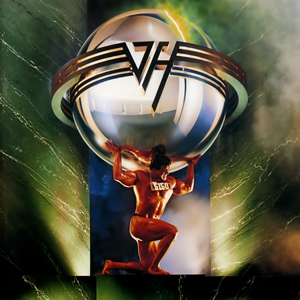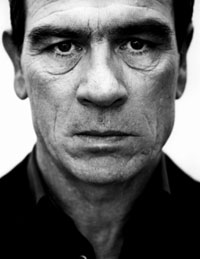Borne back ceaselessly

To generalise for just a moment: Endings are a tricky business. Anybody who has ever written a narrative knows this. How to get an ending right, with just the perfect amount of closure, audience satisfaction, ambiguity and emotion? How to resolve long-running plotlines and honour characters with much invested in them? How to make it feel like all the effort was worthwhile, in other words? Since the end - of a book, television series, play or movie - is what you finally carry off with you back into the real world, endings have an awful lot of weight to bear. A great ending enhances what has gone before, a bad ending can make an audience feel shortchanged. And ending, moreover, can give a story meaning.
A few weeks ago, one of my favourite ongoing stories ended. "Y: the Last Man" is the only monthly comic series I've been following religiously, every single month, over the last few years. I read the issues in shops, then buy the trade paperbacks when they're released a few months later. The final trade paperback won't be released until June this year, but I read issue 60, the finale, in a comic shop a couple of weeks ago. I've been reading it since 2002, dropping into one comic shop or another to read the latest issue approximately every four weeks - and now its over. There a few characters I read casually because I have an emotional investment in them going back to boyhood - Spider-Man, Batman, Daredevil, Moon Knight - and a bunch of creators I read no matter what they do, but "Y" has been the only series I've been following for what seems like ages. Over the course of its run, writer Brian K Vaughn has added himself to that list of creators I follow, and I've read and liked his other series "Ex Machina" and "Runaways", all because of "Y". Reading that last issue, there was a certain panel detailing the fate of a (non-human) character that made me choke up. I read it with sudden tears in my eyes. Right there on the blindingly lit shopfloor in Forbidden Planet, surrounded by overgrown boys reading about costumed crimefighters. It made me think: I love this comic. I love comics. I love good storytelling.

"Y: the Last Man" is the story of Yorick Brown and his pet capuchin monkey Ampersand, the only survivors of a plague which destroys all of the world's male mammals. As society collapses, then begins to rebuild itself, Yorick and Ampersand set out to find Yorick's girlfriend Beth, who was in Australia when the plague hit. Accompanied by a secret agent detailed to keep him alive by the new Lady President (also Yorick's mother) named 355, and a geneticist searching for a reason for the plague and Yorick's survival named Dr Alison Mann, they encounter a series of bizarre characters and new cults and phenomenon during their long journey across this post apocalyptic world. That description makes it sound trashier and sillier than it really is. Its not actually trashy at all, despite its flirtation with a half-dozen separate genres, and Vaughn is too talented a writer for it to ever be silly.

The key to the series' greatness is Vaughn's strength with characterisation - "Y"s principal trio are all fascinating, utterly distinctive people, both original fictional creations and recognisably real individuals. Their contrasting reactions to the people they meet and the situations they find themselves in upon their quest allow Vaughn and artist Pia Guerra to subtly investigate each personality, sharply and beautifully delienating character arcs to mirror the physical journey undertaken by the characters. In this Guerra's art is elegantly complimentary to Vaughn's script, given that her chief strength, alongside a crisp, clean line, is an acute ability to capture the nuances of facial expression. Yorick's ironic distance, his knowing cheesiness, are evident in her depiction of him, just as much as in the frequently hilarious one-liners Vaughn provides him with. 355 is all contemptuous frowns and sarcasm hiding some inner vulnerability, Mann a deadpan neurotic. The three characters are so vividly portrayed and so believable that some way into the series, I realised that I would probably be happy just to read about their interplay - Yorick's jokey, pop-culture heavy riffs, 355's dismissal of him, Mann's quizzical remove - without any more storytime devoted to their journey.
But the journey was almost always a pleasure, as they rambled across America for a couple of years, encountering a variety of cult groups and Government concerns, learning about themselves and each other. Then the series went international, as the characters travelled to Australia and Japan and France. As it went, the plotting grew more complex and knotted as the people aware of and in pursuit of Yorick multiplied. The cast was a sprawling and eclectic thumbing of the nose to writers who cannot write women - Vaughn used female soldiers, politicians, Nuns, reporters, ninjas, scientists, astronauts, former pop stars - and he did them all justice. The series never gave an easy explanation for what had caused the plague, which might have irritated some readers. But Vaughn claims that one of the many hypotheses in the series is the real one without specifying which. There is something provocative in this, and in many of the satirical moments in the series, where he and Guerra poke fun at Government apparatus or religious extremists, at the patriarchal systems in place in the real world, at the modern media and at the idiocies of sexual politics. Vaughn is always aware of the serial nature of his narrative, and he plots great action beats and a run of great cliffhangers, all managed with a casual efficiency by Guerra. The dark tone of the setting and much of the plotting is leavened by the fact that he is perhaps the wittiest scripter in modern comics - Yorick, in particular, can be genuinely funny. And yet this is part of the beauty and complexity of the character - while light-hearted and consistently chatty and jokey, he is troubled, and at one point even suicidal. The main thrust of the story is his coming-of-age, and Vaughn handles that side of the narrative as dextrously as he does all the others. An issue where one of 355's colleagues performs an intervention by psycho-analysing Yorick is one of the series many high points. Even the filler issues - where Guerra is not the artist - are of consistently high quality. Vaughn uses them to explore the world of "Y", to focus on a character we have fleetingly met, to develop a theme or answer a question.
And so to the ending. Comics is not a medium that has to do endings all that much - all of the big Superhero icons are the stars of ongoing series, they live in the perpetual now, in a longrunning story without end. We know that when Captain America dies he will soon return, largely unchanged. Death is impermanent. Alan Moore wrote many years ago in the introduction to the original "Dark Knight Returns" collection that one of its strengths was that it gave Batman an ending. Most the great fictional icons have had definitive endings to suit their statures. The success of the "Dark Knight Returns" meant that in the years since we have seen a series of "Endings" for every major Superhero character, from Superman to the Punisher, generally set outside continuity so as not to harm the ongoing stories still making money for the publishers.

But "Y: the Last Man" was published by Vertigo, an imprint of DC Comics. The really big franchises Vertigo have produced have all ended definitively - Neil Gaiman's "Sandman" and Ennis & Dillon's "Preacher" being the best examples. Vertigo is unafraid of ending a story, if that is what its creator believes must happen. Vaughn had always claimed that "Y" would run for 60 issues. And so it proved. The story proper had climaxed in the previous five issues, with a long-awaited reunion, a big revelation and a shocking death. Vaughn cleared the decks for the last issue, in effect. That meant that he could set it sixty years after issue 59, giving us an overview of the world after it has "recovered" from the plague. But most importantly we learn what becomes of Yorick himself. It is a fittingly bittersweet issue, beautifully paced and structured, and it feels like a worthy ending to a great story. The final panel is a lovely sight gag, and yet somehow, oddly moving at the same time. And the last Ampersand scene is just beautiful.
I'm obviously going to miss "Y". But I've got all of the collections so far, and I'm already sort of looking forward to rereading the whole thing in one long binge. Theres also the prospect of the movie - to be directed by DJ Caruso and possibly star Shia Lebouef - about which I am, well, ambivalent. But bad movies have been made before, based on books I love. Its no tragedy. Vaughn and Guerra's work won't suffer any because of it. One thing you just know for certain, though, is that the movie just won't, just can't get that ending right.
Labels: comics







